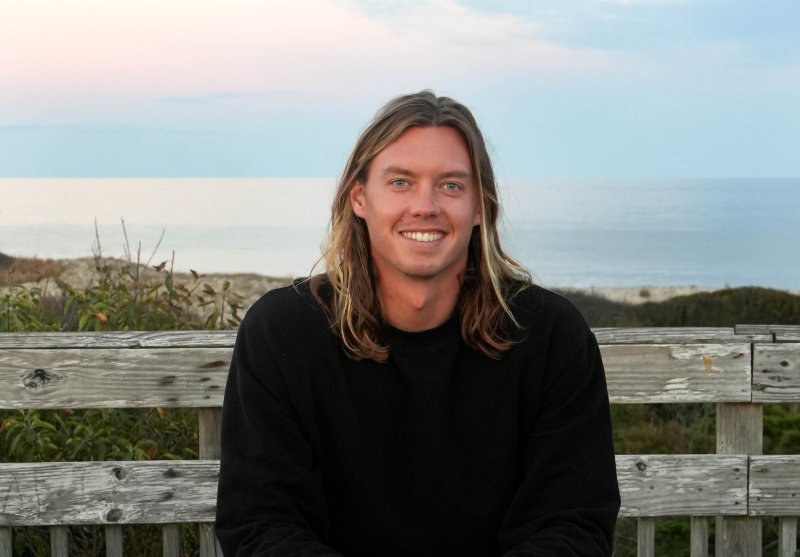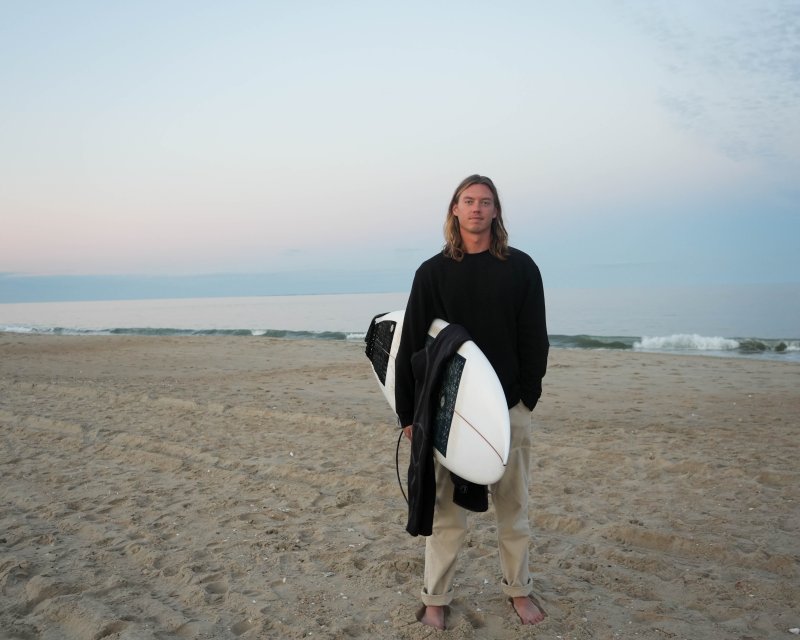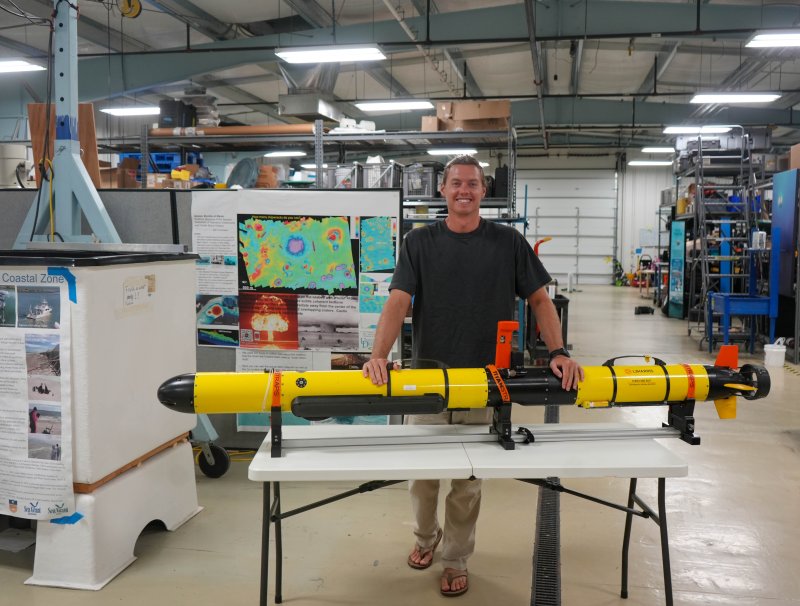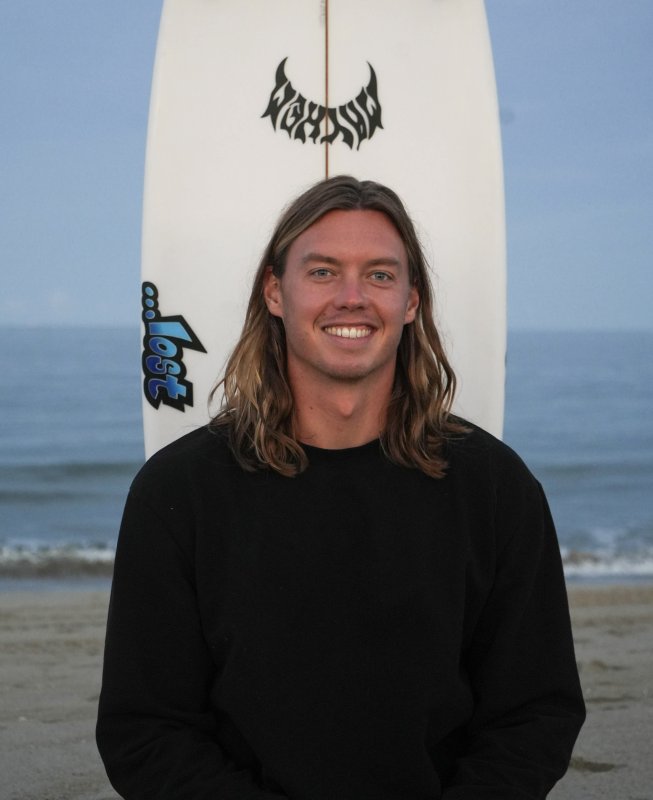Grant Otto: Bringing the ocean to those who can't experience it every day
Grant Otto could barely see his scuba diving gauges – or anything, really – for the six hours he spent huffing and puffing in the murky water off Wallops Island, Va., helping to dig out $20,000 worth of his team’s marine research equipment that had gotten stuck in thick mud on the sea floor 20 feet beneath the surface.
For Otto, it was another day at the office, and a chance to show the world that marine science is a lot more than dolphins and sea turtles.
The 28-year-old Newark-turned-Lewes native is a marine scientist, researcher, divemaster, surfer, photographer, videographer and content creator.
He surfs year-round, at least a couple times a week, and keeps his boards in his car just in case.
“If there’s a day when I have the time and there’s a wave out there, I’ll be there,” he said.
After falling in love with robotics in college, he decided to pursue marine robotics, so he could live somewhere he could also surf.
As an advanced underwater systems operations manager at the University of Delaware’s School of Marine Science & Policy, he works with a lot of autonomous underwater vehicles, which are programmable robots that operate underwater without real-time human control. He helps mount various instruments and sensors onto these AUVs so they can be used for field work.
Most of the work he does is with professor Art Trembanis’ lab.
“Sonar is really our thing,” Otto said. “Mapping the sea floor, doing some development on how to map the sea floor better, and also doing things like mapping beaches, from the dune down to 25 feet of water, and measuring how they’re changing over time.”
For his master’s work, he conducted a series of surveys at and around Herring Point in Cape Henlopen State Park, and helped to create 3-D maps of the area, allowing for analysis of how the area has changed over time, how storms and nor’easters impact it, and how – or if – the beach recovers from those events.
This kind of research is pivotal in understanding how Delaware beaches are impacted by coastal change and climate change.
Currently, he’s helping map several of Delaware’s 14 artificial reef sites, which were developed by the Delaware Department of Natural Resources and Environmental Control to create new habitats for marine life. The sites, which are located within Delaware Bay and along the Atlantic Coast, comprise millions of tons of rock, concrete, subway cars and sunken vessels.
“We’re starting to try to figure out a way to put the maps into VR and make them accessible to people who have no idea what’s down there,” he said.
While much of his research and field work takes place off the coast of Delaware and in the Inland Bays, he has also helped to develop 3-D maps of underwater areas and shipwrecks around the world, including in Bikini Atoll, 10,000 miles from Lewes in the middle of the Pacific Ocean, for an episode of National Geographic’s “Draining the Oceans.”
A few years ago, Otto created Sea Saturated – @seasaturated on Instagram and YouTube – to share his passions and knowledge with the world.
“The more I talked to people, especially people out in the water, they had no idea what’s literally 3 feet beneath them, because they couldn’t see it,” he said. “And the more I talked to them about it, the more interested they became. I just decided this would be really nice to be able to tell all who want to listen.”
He likes to call his content semi-educational, semi-wholesome.
“It’s my life’s passion of trying to bring the ocean and science to people who can’t experience it every day, to break down the barriers of imposter syndrome, to make science communication more accessible,” he said.
The platform is still in its infancy, he said, and he’s excited to continue growing it.
“Some of the most rewarding moments that I've had with Sea Saturated are when I have a comment section that's filled both with commercial fishermen and people who have never seen this stuff before, who, you know for a fact, in real life, those people never would've had that conversation [otherwise],” he said. “Those little bits of conversations, maybe changing people's mind about whether climate change is human-induced or not, that's enough fuel to keep me going, keep making stuff.”
Ellen McIntyre is a reporter covering education and all things Dewey Beach. She graduated with a bachelor’s degree in journalism from Penn State - Schreyer Honors College in May 2024, then completed an internship writing for the Pittsburgh Post-Gazette. In 2023, she covered the Women’s World Cup in New Zealand as a freelancer for the Associated Press and saw her work published by outlets including The Washington Post and Fox Sports. Her variety of reporting experience covers crime and courts, investigations, politics and the arts. As a Hockessin, Delaware native, Ellen is happy to be back in her home state, though she enjoys traveling and learning about new cultures. She also loves live music, reading, hiking and spending time in nature.

























































